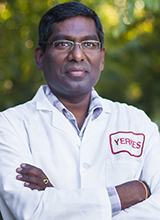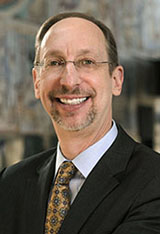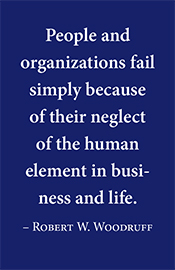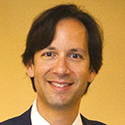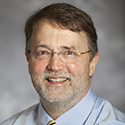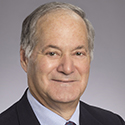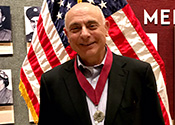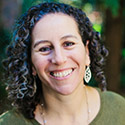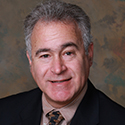

Taking on T cells gone bad |

Emory Healthcare's new marketing and advertising campaign |
 In brief |
||||||
| February 27, 2017 | |||||||||
Getting results: Payoff from accelerating value in patient care
When the team that handles total hip and knee replacements wanted to improve its length-of-stay and outcomes at Emory University Hospital Midtown, it came up with a solution not many managers want to hear—hire more people.
"We determined that if we could reduce length of stay by one day, it would more than pay for the three people we wanted to hire," says Pam Sapp, clinical nurse specialist in orthopaedics and team lead on the project. Specifically, Sapp wanted to hire a dedicated physical therapist and a dedicated social worker. She also wanted to add someone dubbed a "discharginator" whose task was to eliminate barriers to discharge. She also asked to add a discharginator at Emory University Orthopaedics & Spine Hospital in Tucker. Thus far, those four new employees have helped reduce length of stay by almost a full day, benefiting patients and saving Emory Healthcare (EHC) $6.4 million over two years, as of the end of FY 16. The discharginator project is one of many successes to stem from the EHC Value Acceleration-Clinical Effectiveness Program. The heart failure team reduced readmissions so that some 40 fewer patients had unnecessary hospital stays in fiscal year 2016. The mortality rate from sepsis fell from 11.4% to 7.4% from FY 2014 to FY 2016. Coupled with improvements in quality of care, such efforts have saved EHC $14.4 million by reducing variation and creating greater efficiencies. "These projects are positioning EHC to improve clinical outcomes for patients and also be able to participate in new payment models that are around the corner for all health care systems," says Gregory Esper, neurologist and director of the office of New Care Models. Esper and Christina Hoover, director of the Project Management Office (PMO), act as facilitators to the clinical teams doing the value acceleration-clinical effectiveness projects. The PMO operates like an in-house consulting firm, providing administrative and process-improvement expertise along with needed data. Esper is the clinical liaison. And clinicians such as Sapp do the actual work of implementing needed changes. "The goal of the value acceleration team is to find ways to provide the highest quality care with the best patient and family experience at the most efficient cost," says Esper. Here is a look at other value acceleration and clinical effectiveness projects: - Tricia Crabtree, director of the hematology leukemia unit, participated in a team to reduce length of stay for newly diagnosed leukemia patients. Crabtree and her team reduced variation by revising their admission order set so that every patient now gets a standard treatment plan. Protocols were also standardized to ensure all providers followed the same procedures. "Now everyone is working off the same information," says Crabtree. In addition, Crabtree was able to get a social worker who previously split her time between two units assigned to the leukemia unit fill time. She also hired a discharge coordinator. These interventions have helped reduce length of stay by 0.5 days from FY 2014 to FY 2016, saving $520,000. - The Emory Structural Heart and Valve Center, led by Vinod Thourani, chief of cardiothoracic surgery at Emory University Hospital Midtown, and cardiologist Vasilis Babaliaros, is renowned for its revolutionary transcatheter aortic valve replacement (TAVR) program. The center worked with the value acceleration team to standardize the myriad materials used in its procedures, from catheters to balloons, resulting in reduced waste, increased efficiency, and cost savings. The center was also able to overcome barriers associated with getting patients admitted on the same day of their procedure rather than the day before, a task that had seemed insurmountable before getting help from Esper and his team, according to Thourani. These efforts have cut length of stay for the center's patients by 1.7 days and saved $800,000 from FY 2015 to FY 2016. "The valve center had been working toward these kinds of efficiencies, but Greg’s team allowed us to put our individual efforts into a more concerted effort for all three of the Emory Healthcare campuses," says Thourani. "The VAP team was absolutely instrumental in our rapid transformation and shortened the time for implementation of this extremely important initiative." - Clinical teams wanted the data from the clinical data warehouse more readily available and meaningful to users. So Mathu Kumarasamy, analytics program manager for PMO, standardized data to make it easier to understand. Out of the 20 different length-of-stay metrics in the data warehouse, for example, teams use the one preferred by EHC Finance. He incorporated that and other information into the value acceleration program's key performance indicator dashboard, which is a user-friendly way for providers to identify areas of weakness and measure progress. So now, for example, if a surgery team wants to see how well they are using the enhanced-recovery-after-surgery order set, they can pull up the dashboard and get the answer. "Data used to be hidden, inaccessible, and at a premium," says Esper. "Now our teams are all using relevant data in a standardized fashion, so we know when a ball is a ball and a strike is a strike.—Martha McKenzie
Police TV shows like Law & Order have introduced many to the Internal Affairs Bureau: police officers who investigate other police officers. This group of unloved cops comes to mind in connection with HIV/AIDS research published this month in PNAS by Rama Amara’s lab at Yerkes and Emory Vaccine Center.
One reason that HIV infection is hard to eliminate is that it infects immune cells that act like police officers. The "helper" CD4 T cells that usually support immune responses become infected themselves. So for the immune system to fight HIV effectively, the "killer" CD8 T cells would need to take on their own CD4 colleagues. In patients taking antiretroviral drugs, HIV is mostly suppressed but sticks around in a reservoir of inactive infected cells. Those cells hide out in germinal centers or specialized areas of lymph nodes, which most killer T cells don’t have access to. (Imagine some elite police unit that has become corrupt, and uniformed cops can’t get into the places where the elite ones hang out.) Amara’s lab has identified a group of T cells that do have the access code to germinal centers, a molecule called CXCR5. Knowing how to induce T cells displaying CXCR5 will be important for designing better therapeutic vaccines as well as for efforts to suppress HIV long-term, Amara says. Read more in Labland—Quinn Eastman Emory Healthcare launches new marketing/advertising campaign
Emory Healthcare has launched a new ad campaign, based on the central message that Emory is the "smarter choice" for consumers, whatever their health care needs, whether primary or specialized care. The campaign seeks to differentiate Emory from other providers, emphasizing its expertise and services as an academic health center that offers treatments "years before others can," with innovations accessible to "everyone, everywhere." This campaign emerges from efforts over the past eight months in which EHC Marketing partnered with SPM Marketing in Chicago to define the Emory difference and distill messaging that resonated with patients. Amy Comeau, EHC corporate director of marketing strategy and support, says the team gathered extensive feedback from leadership, physicians, patients, and other consumers to devise a plan that would help Emory do the following: The "big idea" of the campaign, says Comeau, is "to appeal to our audience's innate desire to make smarter, more forward-thinking decisions and give them tangible reasons to believe we are the smarter choice for themselves and their families." The campaign includes a variety of ads for television, radio, and print as well as digital display ads across numerous digital platforms. |
| From the Executive VP
Partnership will continue strong after Egleston's future move
You have likely seen the recent announcement by our friends at Children’s Healthcare of Atlanta that, following studies of future demand and capacity, they plan to build a new hospital at their North Druid Hills/I-85 campus (directly across from our Executive Park facilities) within the next several years. Emory and Children’s have had a productive partnership serving children in Atlanta and beyond for more than 60 years, and we know that our relationship will continue to expand and accelerate in the new location. Our faculty physicians will continue to provide specialty and sub-specialty care at Children’s facilities. Our researchers will continue to collaborate within the Emory-Children’s Pediatric Center and to conduct their work in the Health Sciences Research Building and the Emory Children’s Center. Very importantly for Georgia, Emory’s pediatric residency programs will continue to train highly skilled physicians. We are extremely optimistic about the ongoing strength of our partnership with Children’s and our ability to continue our excellence in the top ranks of pediatrics departments nationally and to improve the lives of children and their families.
Emory liver transplant program ranked second nationally
Emory's liver transplant program ranked second in the country (after UCSF) in the most recent report of the Scientific Registry of Transplant Recipients, which compares adult liver transplant centers by volume and outcomes (survival at one year with a functioning graft). The program is led by Joe Magliocca (surgical director) and Ram Subramanian (medical director. $2.5 million for fitness center at ESJH
The James M. Cox Foundation and Jim Kennedy made a combined donation of $2.5 million for construction of the James C. Kennedy Fitness Center at Emory Saint Joseph's Hospital, giving physicians, nurses, and other staff complimentary 24/7 access to the facility. Read more. First HIV-positive kidney transplant
The Emory Transplant Center recently performed its first kidney transplant from a deceased HIV-positive donor to an HIV-positive recipient. This was made possible by the HIV Organ Policy Equity (HOPE) Act. Surgeon Nicole Turgeon is PI of the HOPE pilot study at Emory. Read more. Notable
Angela Amar (assistant dean, BSN education, nursing school) recently received two 2016 American Journal of Nursing Book of the Year awards for A Practical Guide to Forensic Nursing. Read more.
Cardiologist Vasilis Babaliaros received the Orloff Science Award from the National Heart, Lung and Blood Institute for his work on a clinical trial demonstrating the utility and safety of transcaval transcatheter aortic valve replacement.
Bill Eley (executive associate dean for education, medical school) is the 2017 recipient of the Charles R. Hatcher Jr, MD, Award for Excellence in Public Health, to be awarded at a ceremony on April 24.
Neurologist Charles Epstein received the 2017 Pierre Gloor Award from the American Clinical Neurophysiology Society for his research. Read more.
EVPHA Emeritus and former US Army Major Michael M.E. Johns received the US Army Order of Military Medical Merit at a recent Uniformed Services University Board of Regents meeting.
YongGang Ke (biomedical engineering) will receive a National Science Foundation award recognizing the highest level of excellence among early-stage researchers. Read more.
Wilbur Lam (pediatrics and biomedical engineering) recently was inducted into the American Society for Clinical Investigation. Read more.
Karen Levey (environmental health, RSPH) was selected as a 2017-2018 Public Engagement Fellow by the American Association for the Advancement of Science. Read more.
Jeff Sands (director, renal division, medicine) is president-elect of the American Physiological Society. Read more. Events April 25: 2017 State of the WHSC Address by EVPHA Jon Lewin. 4:30 p.m., WHSCAB auditorium. Reception to follow. May 10: Eighth Annual Academic & Industry Intersection Conference. Georgia Tech Research Institute Conference Center. June 1: 10th Emory Quality Conference. Posters and workshops 1 to 4 p.m. Speakers 4:30 to 7 p.m. More details soon. |




